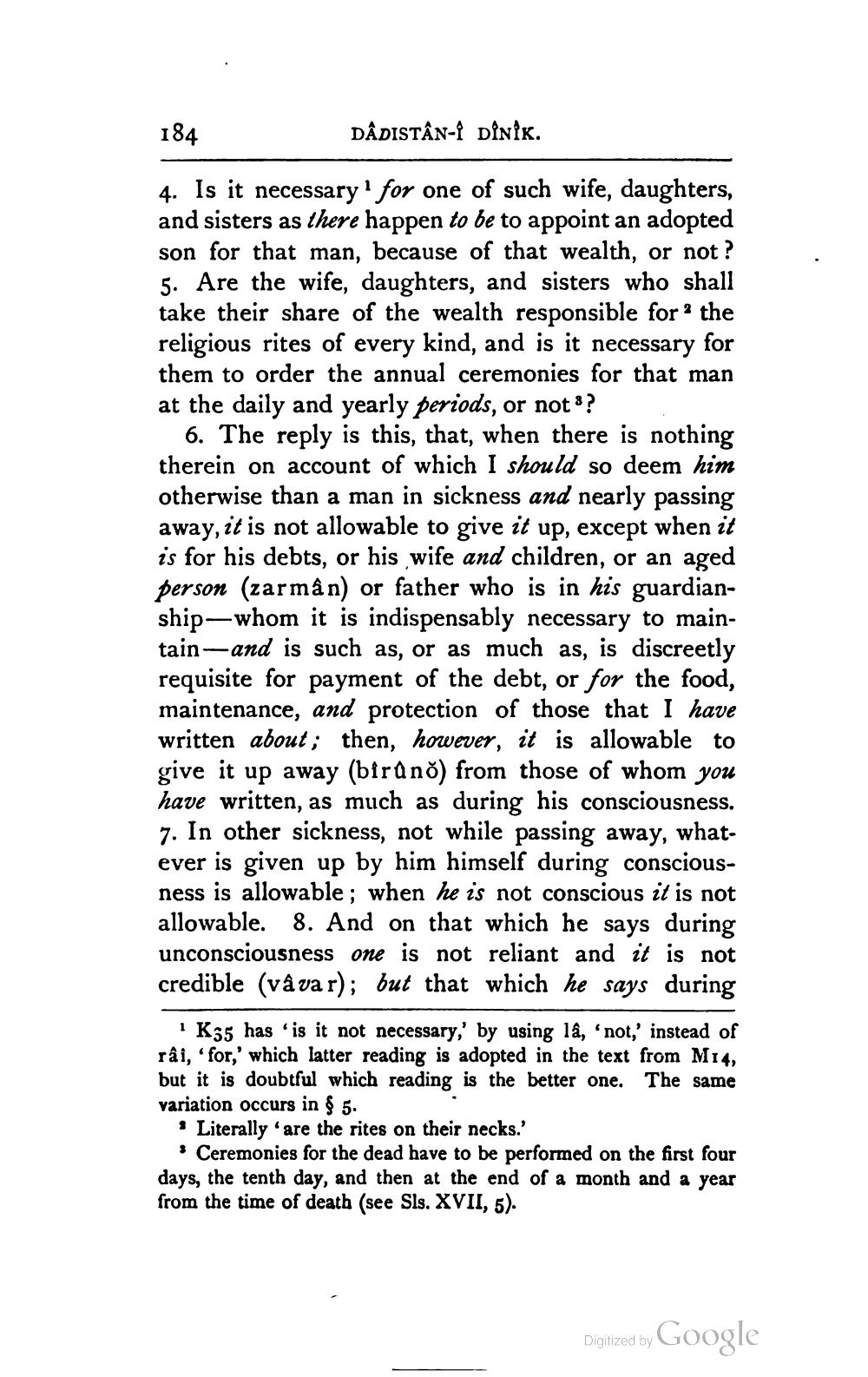________________
184
DÂDISTÂN-I DÎNIK.
-
4. Is it necessary for one of such wife, daughters, and sisters as there happen to be to appoint an adopted son for that man, because of that wealth, or not? 5. Are the wife, daughters, and sisters who shall take their share of the wealth responsible for the religious rites of every kind, and is it necessary for them to order the annual ceremonies for that man at the daily and yearly periods, or not?
6. The reply is this, that, when there is nothing therein on account of which I should so deem him otherwise than a man in sickness and nearly passing away, it is not allowable to give it up, except when it is for his debts, or his wife and children, or an aged person (zarmân) or father who is in his guardianship—whom it is indispensably necessary to maintain-and is such as, or as much as, is discreetly requisite for payment of the debt, or for the food, maintenance, and protection of those that I have written about; then, however, it is allowable to give it up away (birano) from those of whom you have written, as much as during his consciousness. 7. In other sickness, not while passing away, whatever is given up by him himself during consciousness is allowable; when he is not conscious it is not allowable. 8. And on that which he says during unconsciousness one is not reliant and it is not credible (vâ var); but that which he says during
1K35 has is it not necessary,' by using la, 'not,' instead of râi, 'for,' which latter reading is adopted in the text from M14, but it is doubtful which reading is the better one. The same variation occurs in $ 5.
Literally are the rites on their necks.' · Ceremonies for the dead have to be performed on the first four days, the tenth day, and then at the end of a month and a year from the time of death (see Sls. XVII, 5).
Digitized by Google




